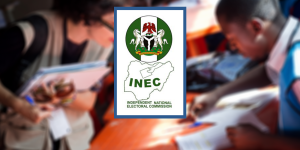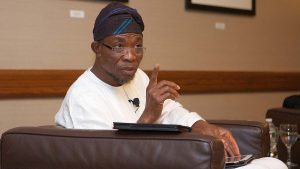Peace in The Horn of Africa: Between Ethiopia and Eritrea By Inwalomhe Donald
Ethiopia and Eritrea relations will promote peace and understanding between Ethiopia and Eritrea in different spheres. Ethiopia and Eritrea economic peace efforts are efforts to promote joint economic projects and efforts between Ethiopia and Eritrea as a pathway to reach peace between the two groups in the Horn of Africa.
What the leaders of both Eritrea and Ethiopia have jointly stated that a full normalization of relations will occur, and in the short term that will involve opening the border, giving Ethiopia access to the ports, reopening the embassies that have been shuttered since 1998, and resuming flights between the capitals. People will apparently be able to cross the border at will—and no mention has been made of any tariffs on goods. (That was one of the sources of conflict before the war.) The Horn of Africa has long been a focal point of strategic interest to outsiders. In fact, for many centuries, the Horn attracted international attention for three main reasons: strategic location; religious and ethnic diversity; and agricultural potential. Now the Tigrayans have been thrown out of power, and overnight, democracy and peace seems to be spreading magically across the Horn of Africa.
With a newly invigorated Eritrea, which is poised to take a leadership role on the regional stage. There’s a strong upside to that: Eritrea could be extremely helpful in resolving the conflict in the Horn of Africa and South Sudan. For example it could help make progress in Somalia. Eritrea, for example, has always talked about the importance of negotiating with all the actors in the Somali conflict, not just the pro-government actors—including parts of the terrorist group al Shabaab. Conflict resolution processes must meet certain prerequisites and conditions. Unless the warring parties or the mediators meet, it will be difficult to find lasting and just solutions to the conflicts in the Horn (Djibouti, Eritrea and Ethiopia, and Somalia). Most of these conflicts have ethnic or religious components and also have a lot do with the nature of the government institutions and the power distribution among the communities within these states. Identifying the main causes of the conflict and the issues involved in each country is a very necessary first step toward peace.
The bottom line is that a partnership between Isaias in Eritrea and a true democratic leader in Ethiopia will allow for the creation of a more authentic regional voice to counter parochial assumptions about the Horn.
Four important countries in the Horn -Djibouti, Eritrea, Somalia and Sudan- border two important waterways: the Red Sea and the Indian Ocean. These two important waterways are trying to regain an important role in the international naval trade route system, especially now that some Middle Eastern countries, Russia and some Asian countries are opening up their markets to Africa after the end of the Cold War. Moreover, the emergence of Africa as a potentially lucrative market for Asian electronic technology, the discovery of oil reserves in Sudan; and the effects of globalisation in international trade, make the Horn of Africa an important nexus for Africa’s 21st century economic ambitions. In addition, Sudan’s oil industry potential, water reserves and agriculture potential will allow it to make it an important contribution to regional development once it attains internal stability. Ethiopia too, once its internal problems are resolved, has water reserves and human resources that, if properly used, would add considerably to the region’s growth prospects.
In a shocking diplomatic thaw that reshaped the Horn of Africa, this year Ethiopia’s prime minister announced his country would fully accept a deal ending a 20-year border war with Eritrea. War broke out between Ethiopia and Eritrea in 1998 over the border and other issues, killing an estimated 80,000 people before fighting finally ended in 2000 in a contested peace deal.
However, tensions simmered over the position of the frontier until this year when Ethiopia’s Prime Minister Abiy Ahmed offered to end the standoff as part of a package of reforms that have reshaped the political landscape of the Horn of Africa.
Ethiopia and Eritrea Relations focus on two main ideas. One is that war and the threat of war have shaped the way young people lived their lives, producing different realities in urban and rural areas. The other is that peace has brought the opportunity for young men and women to try and compensate for the chances they have missed and that this notion is clearly grounded on the idea of accessing modernity. The focus on young people’s ideas and their own expression of what their needs and perspectives of the future are may help understand today’s Ethiopia and Eritrea Relations situation and contribute to improving youth policy and action.
The reopening of some of the border crossings, including one earlier this year, is part of the peace deal signed last July by Eritrea’s President Isaias Afwerki and Ethiopian Prime Minister Abiy Ahmed. The agreement has also seen diplomatic ties renewed and phone links between the two countries restored after being cut off for nearly two decades. The war, fought over the exact location of the common border, began in May 1998 and left tens of thousands of people dead. It ended in 2000 with the signing of the Algiers agreement
But peace was never fully restored as previous Ethiopian administrations under the late Prime Minister Meles Zenawi and his successor Hailemariam Desalegn refused to fully implement a ruling by a border commission established in terms the agreement. But last July, Prime Minister Abiy and President Isaias agreed to end the conflict and usher in what they called a “new era of peace” that has seen relations between the two countries and other neighbouring states thrive.
The winds of change are blowing across the Horn of Africa following the signing in Jeddah, Saudi Arabia, of the 17 September peace agreement by Ethiopian Prime Minister Abiy Ahmed and Eritrean President Isaias Afwerki. The two countries have ceased hostilities and restored trade and diplomatic ties, and have planned joint projects.
“Local trade is reflourishing as Eritreans and Ethiopians trade with no currency exchange issues. Birr-nakfa [their respective currencies] exchanged on parity on the ground. Very positive development—but needs institutionalisation!” says Kjetil Tronvoll, a Norwegian professor who follows developments in the Horn of Africa and founder of Oslo-based International Law and Policy Institute, a think tank.
After a bitter war that lasted 20 years (from 1998 to 2018) and during which as many as 100,000 were killed, the agreement has enabled air services to resume, phone lines to reopen, military hostilities to cease and families to reunite.
As the agreement was announced, hundreds of citizens hugged each other in their respective countries and celebrated. Their leaders have also officially opened the crossing points of their shared border, which had been closed for 20 years.
Since 1998, no head of state or government representative had visited either side. Telephone lines had been disconnected, effectively cutting off communication between the two countries.
Ethiopia Airlines, which stopped flying the route in 1998, is now back, flying weekly to Asmara, Eritrea’s capital, a move likely to boost trade ties and contribute to economic growth.
“This is my message to Ethiopians: love looks better on you,” Prime Minister Ahmed said in Jeddah, adding, “Love is the only way with our Eritrean brothers.”
President Afwerki said, “Hate, discrimination and conspiracy are now over. Our focus from now on should be on developing and growing together.… Now is the time to make up for the lost times.”
The crisis had real-life effects on Eritreans and Ethiopians. Astebeha Tesfaye, an Ethiopian who has been in Eritrea since 1998, now hopes to finally return home. He had gone to visit his friends in Eritrea 20 years ago when hostilities broke, and the borders were closed. He was forced to remain in Eritrea ever since.
Many credit Ethiopia’s 41-year-old prime minister with accelerating the pace, and changing the tone and direction, of peace negotiations. On taking office, Mr. Ahmed stunned both sides by announcing that Ethiopia would give back to Eritrea the disputed border town of Badme in the Gash-Barka Region, 139 kilometers southwest of Asmara. Justifying the decision to hand over the town, the ruling Ethiopian People’s Revolutionary Democratic Front noted that “the Ethiopian and Eritrean people are tied together linguistically, by history and by lineage.”
The so-called Jeddah Agreement was the culmination of peace initiatives that began on 8 June 2018 with the historic embrace between the two leaders in Asmara. That was followed by the signing of a joint declaration in Asmara on 9 July, and then by the Jeddah Agreement and the resumption of diplomatic and trade relations on September 18.
The deal was sponsored by Saudi Arabia’s King Salman bin Abdulaziz Al Saud, who promptly awarded the two leaders the Medal of King Abdulaziz. Among the dignitaries at the signing ceremony were the United Nations Secretary-General António Guterres and Saudi Arabia’s King Salman bin Abdulaziz Al Saud.
Article one of the seven-point Jeddah Agreement reads: “The state of war between the two countries has ended, and a new era of peace, friendship and comprehensive cooperation has started.”
Other articles focus on, among other things, strengthening relations in security, defense, trade and investment, and the cultural and social fields; establishing joint economic zones; and combating both terrorism and “trafficking in people, arms and drugs, in accordance with international covenants and conventions.”
With the peace pact, landlocked Ethiopia can now use, tax-free, the Red Sea ports in Assab, in the south of Eritrea, and in Massawa in the north. Ethiopia currently spends over $1.5 billion annually for the use of Djibouti ports. Eritrean industries, on the other hand, will gain access to Ethiopia’s 100 million consumers (the second-largest in Africa). Before the Jeddah Agreement, several unsuccessful attempts had been made to broker peace between the countries. Ethiopia rejected a boundary commission ruling in 2002 that Badme belongs to Eritrea.
In September 2017, the Switzerland-based World Council of Churches, with millions of members in Ethiopia and Eritrea, failed to reconcile the two countries. Further efforts by the US State Department, the UN and the African Union did not bear fruit, according to The EastAfrican, a Nairobi-based publication.
The latest peace deal will be tested in the months ahead, says Martin Plaut, a senior research fellow, Horn of Africa and Southern Africa, at the Institute of Commonwealth Studies in the United Kingdom. He maintains that, “For the peace efforts to stick, both Ethiopia and Eritrea must complete internal reforms.”
He adds, “Prime Minister Abiy [Ahmed] has pushed Ethiopia much further down the road of reform, while Eritrea still has a long way to go. Consolidating democracy and internal peace-building will be needed if the dramatic pace of change is to hold in the Horn of Africa.
Inwalomhe Donald writes from Addis Ababa, Ethiopia https://inwalomhedonald.com.ng inwalomhe.donald@yahoo.com
![]()




